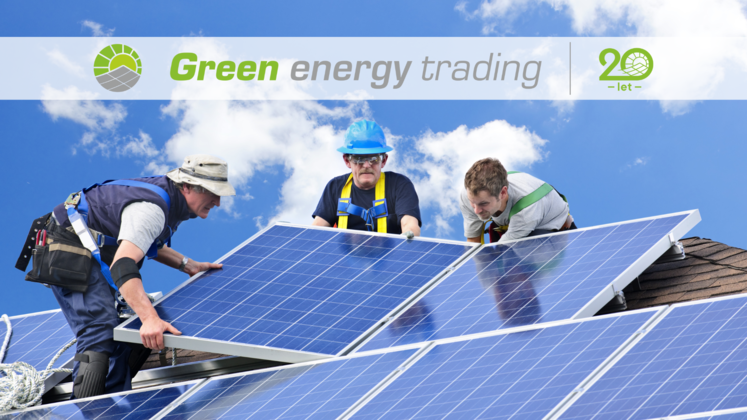Пет причини да кажете НЕ на фотоволтаиката, която правите сами
 22. 5. 2025
22. 5. 2025
You can find dozens of DIY photovoltaic guides on the internet. How to buy panels, attach them to your roof, connect the inverter, and get the system up and running without the help of a professional company. At first glance, it looks tempting and simple. However, upon closer inspection, you will find that it is not a good idea.
In the following points, we summarize the main reasons why you should not attempt to install photovoltaics yourself. It is not just a matter of technical details, but above all of legal requirements, loss of subsidies, safety, and future risks.
1. Legislation requires professional installation
A photovoltaic power plant is a device that falls under electrical engineering regulations. This means that all work related to its installation and connection may only be carried out by a person with the appropriate qualifications and authorization. It is not enough to have skilled hands and experience with installing sockets.
When installing a PV system, you must comply with current standards and safety requirements and then carry out an inspection. This can only be issued by a certified inspection technician. If the inspection is not in order, distributors will not connect you to the grid and you will not be able to officially start the power plant. In some cases, such unprofessional intervention may even be against the law.
2. You will not receive subsidies without a professional company
If you want to purchase a PV system with financial support from the state, you must meet the conditions of the New Green Savings subsidy program. One of the key conditions is that the installation must be carried out by a professional company that is registered in the register.
Installing the system yourself or with the help of an uncertified acquaintance will automatically disqualify you from receiving the subsidy, which typically amounts to tens of thousands of dollars. The savings on installation will easily turn into a loss. And above all, if you decide to apply for the subsidy later, it will no longer be possible. The entitlement expires the moment the work is carried out by someone who does not meet the conditions.
3. Risk of incorrect installation
A solar power plant is a system in which a number of components depend on each other. If it is not designed or connected correctly, you will reduce the performance of the entire system, shorten its service life and, in the worst case, endanger the safety of your home.
Typical mistakes include incorrect cabling dimensions, underestimated fuses, improper inverter connection, poorly chosen panel orientation, or shielding. Another significant problem is installation on the roof without proper sealing or anchoring, which can cause leaks or damage to the roofing.
One small mistake can have serious consequences. Professional companies have everything calculated, secured, and verified from dozens to hundreds of installations. This way, you avoid technical and functional problems.
4. They may not connect you to the grid
Do you want your photovoltaic system to supply surplus energy to the grid? Then you must go through the official connection process with your electricity distributor. This requires documentation, contracts, and, in particular, an inspection report.
If everything is not in order, your connection will not be approved. In addition, without an approved connection, you are not entitled to purchase electricity, which significantly reduces the return on your investment. Self-installations often run into complications due to missing or incomplete documents.
Specialized companies have everything ready in this regard. They communicate with distributors on a daily basis, know what to provide, and often take care of everything for you. This way, you don't have to worry about unnecessary delays or rejection of your application.
5. No warranty, no service
When you install a PV system yourself, you take all the risk. If something stops working, you have no one to turn to. Component manufacturers usually require that installation be performed by an authorized partner. Otherwise, they may refuse to honor a warranty claim, even for panels or inverters.
Similarly, your insurance company may reduce or completely refuse to pay out if it finds that the power plant was installed incorrectly. Professional companies provide a warranty for their work, and if something goes wrong, they resolve it without unnecessary arguments.
In addition, they offer after-sales service, system function checks, and production monitoring. These are services that you cannot obtain on your own.
Trust the experts
DIY installation may seem like a cheaper option, but the opposite is usually true. In practice, it often turns out to be a dead end. Not only because of the lack of subsidies and inspections, but also because of the unnecessary risks it entails.
If you want a photovoltaic power plant that works reliably, safely, and without worries, turn to the professionals.
